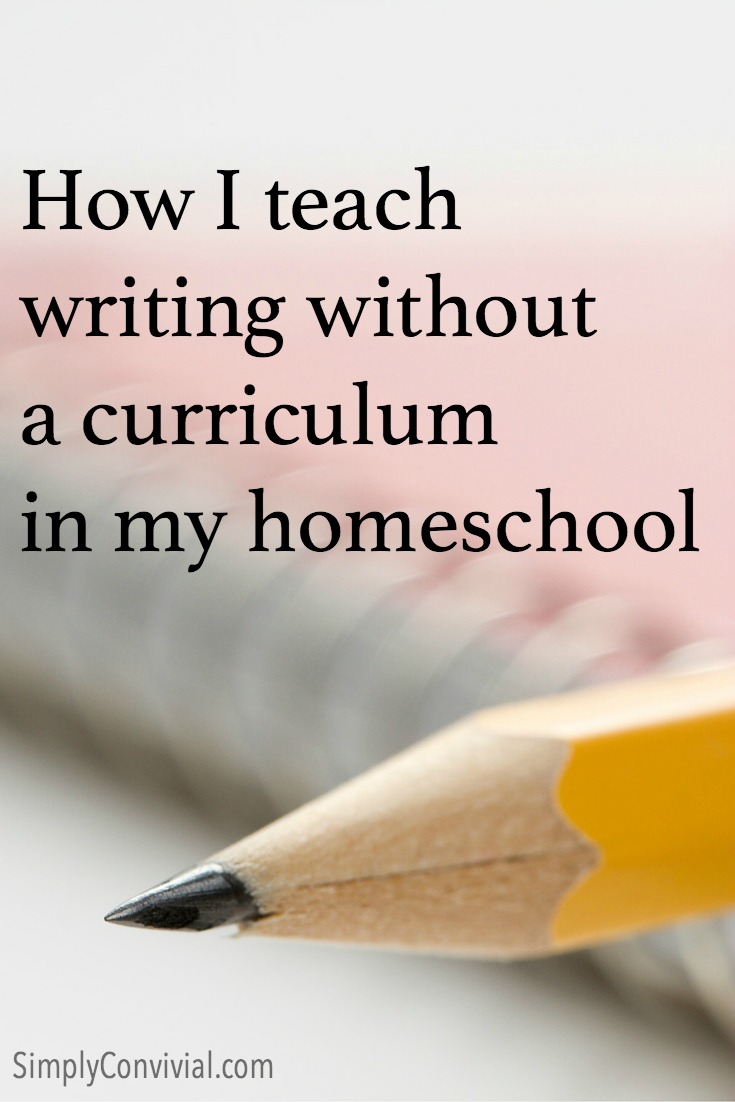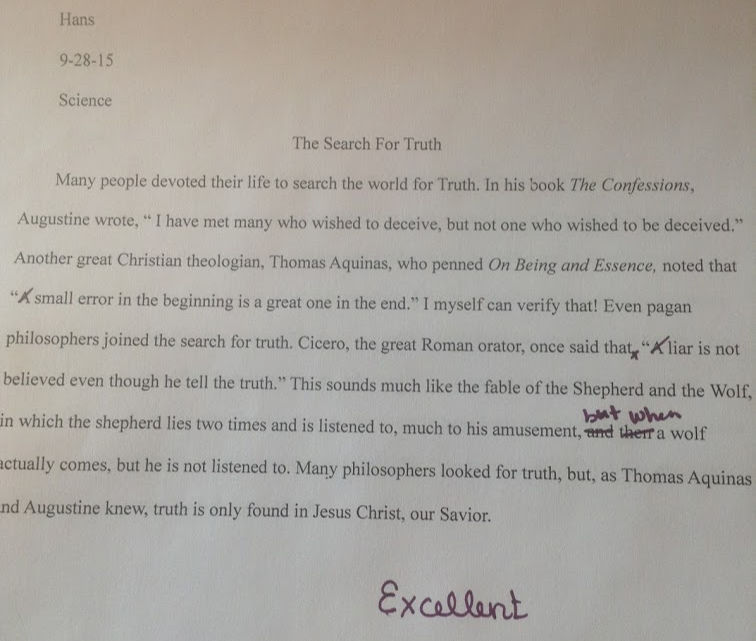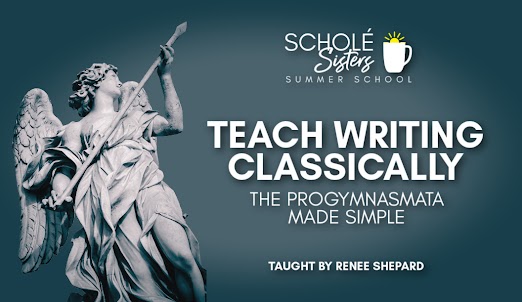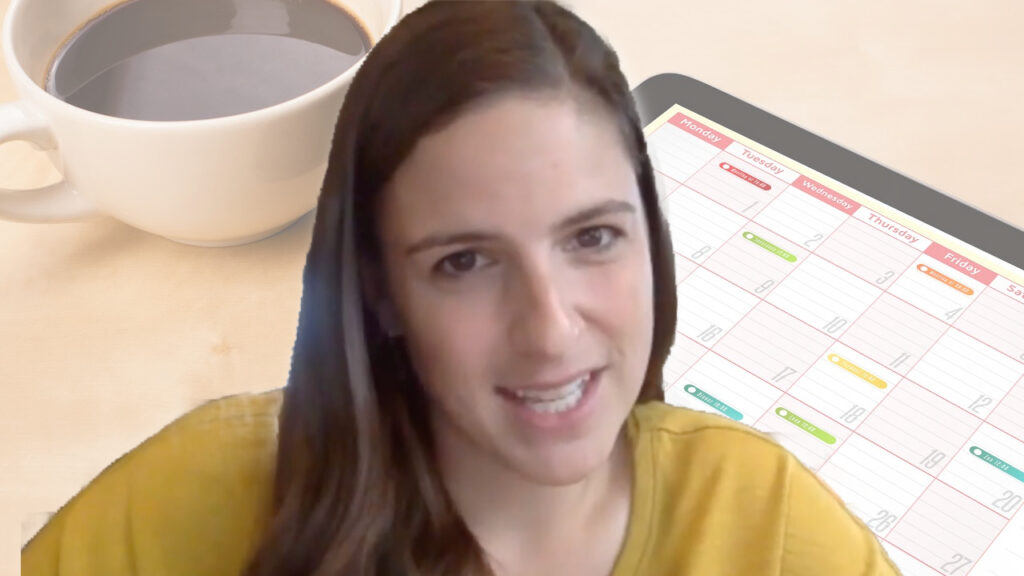
Writing, I believe, is one of the most vital skills we can teach our kids, whether we homeschool or not.
It is so poorly taught in modern education, yet in modern society written communication is necessary & unavoidable. Teaching our kids to write well is one of the best ways to set them apart from the crowd and help them stand out both in college & life.
After all, our children will be writing cover letters, business proposals, sales pitches, emails, church announcements, thank you cards, social media posts, and all manner of written work their entire lives. It behooves us to make sure they know how to do so well.
Yet, how do we teach writing in our homeschools? It seems so subjective, so technical and yet so vague.
There are so many writing programs on the market for homeschoolers right now. Some of them even appear so similar that it can be extremely difficult to know which to choose.
Recently someone – and she was not the first – emailed me to ask,
I was wondering if you might be able to do a blog post about how you teach writing in the younger grades in your homeschool?
And I knew it was time to stop procrastinating on this post.

How I was taught writing when homeschooled
I was homeschooled myself. My parents did not use any particular writing program, but simply assigned a few papers over the course of my teen years. I remember writing 5 pages about the causes of the Civil War and a report about the state of Georgia.
After I wrote something, my mom went through it with a red pen and I cried. Then I made the revisions and then my dad went through it with a red pen and I cried.
Once I tried writing an essay for a writing contest and my friend’s dad edited it. I thought my dad’s technical editing had been brutal. My friend’s dad said half my sentences didn’t connect to the topic or make sense. But when it’s not your parents, you don’t cry.
I entered the local community college at 16 and had an old-school English 101 prof who made us memorize comma rules and would fail the paper if it wasn’t on topic. I also had an English lit instructor who taught us how to write literary analysis, even though that wasn’t technically part of the course.
From there I went on to become an English major at UI, where I took an entire class on sentence diagramming as well as several more writing classes and lit classes that required strong writing. I knew I would likely homeschool. Though I might not be able to teach math well, I would be able to teach writing well.
How I started teaching writing to homeschool kids
So I graduated and my husband and I moved back to our home town. I wasn’t sure what I was going to do with myself exactly. Then a homeschool mom called me and asked if I was interested in teaching writing and literature to a group of kids.
Since I had nothing else to do, I said “sure,” not exactly knowing what I was getting into. She gave me her 1st-generation IEW VHS tapes and my mother-in-law gave me her 1st-generation IEW 3-ring binder. This was before Writing with Ease, before Classical Writing, when IEW was simply teacher/parent training materials rather than a curriculum.
Either curriculum or teacher-training
I taught writing and literature to classes of homeschool kids for about 7 or 8 years, with a few years off here and there depending on when my babies were due. I estimate that I have taught around 50 kids how to write.
Many of my students, who were generally 10-11 years old, had not done any writing at all before taking my classes.In 1-2 years their composition skills rivaled those of the English 101 students I tutored at the University (that says more about English 101 than my teaching).
I have now also taught my two oldest sons to write, and I am positive my oldest – at age 12 – would test out of English 101 and my 10-year-old son would be able to pass it.
They still have a long way to go in becoming good writers. However, the writing requirements of the public school system have sunk so low that what is now college-level English 101 really should be a 7th or 8th grade writing class. My professor in charge of the writing center at UI said as much 14 years ago – I can only imagine it’s worse now.
How to help kids write better at home
I have had multiple students of mine over the years report back that high school and lower-level college English classes covered what I had already taught them in middle school.
However, I don’t think that’s because I am such an awesome teacher. I think it’s because our society’s English standards are so low.
Also, I believe effective writing instruction lies in receiving meaningful feedback and being made to revise papers multiple times. Most classroom teachers simply don’t have the time or resources for that.
My parents might have made me cry with their red pen markings, and I might have made kids cry with my purple pen markings (especially my own), but personal feedback that must be put into practice is the key to improving writing skill.
A teacher with a class of 30 or more cannot read and personally help each student improve their weak spots. But as homeschooling moms, we have the privilege of being able to give our kids individual guidance and attention.
Writing is best taught with the tutoring model, where someone who cares will help each student take the next step to improve his writing ability.
Why I don’t teach writing until 4th or 5th grade
Over and over when I taught writing classes (I mostly taught middle school and higher), I saw that after a year of specific and individualized instruction, I could not tell the difference in ability between the students who had done writing of some sort in their elementary years and those who had not.
The difference in writing skill fell less along the lines of those who had practiced more and instead along the lines of those who had read more and thought more. The truth is, you can’t be a good writer if you don’t have words to use and ideas to communicate.
I taught two 3 & 4th grade level writing classes and resolved after the second to not bother with that level again. It is so difficult and painful to draw the writing out of any but the linguistically gifted 7-9 year old. Why spend 2-3 years going over what could be taught to them in 3-4 months when they are 11 or 12?
Exceptions, sometimes
Now, I broke this rule a smidgen with my own because when it was time to teach my oldest to write, I lumped my second-born into the class as well, even though he was 8 & 9 at the time.
He was linguistically gifted, an early reader, so I thought it’d be ok. It was ok, but it was a struggle for him. Combining ages was the best use of my time, but I could have postponed it another year and it would have been better for my second-born and still not a problem for my oldest.

(This was a first draft written by my just-turned-12-year-old. After snapping the picture, I spotted two more errors: the first sentence has a singular/plural disagreement – it should read “lives” not “life” and if he changes “and then” to “but when” as I suggest, he also needs to remove the but that follows.)
Why make our kids struggle for multiple years learning skills that they can learn with ease and alacrity when they’re just a few years older? It leads to needless tears and headaches. It’s not the best use of our time.
What to do before teaching writing
So if we aren’t teaching 7-9 year-olds composition, what are we doing with them to grow their aptitude?
We do a variety of things that don’t look like writing instruction, but will most definitely improve their communication – including writing – skills when they are ready.
Before they can write well, they have to know how to say things and have things to say.
My biggest frustration in teaching younger elementary kids composition was how often they would phrase things awkwardly and the only thing I could tell them was, “We don’t say it like that, we would say it like this.” They don’t get it. They just made the change, and they begin thinking that writing is a mysterious, confusing, illogical requirement.
Better to surround them and fill them with lots and lots of spoken and written words so they have many language patterns fully internalized. Before they are required to put words on paper, they should be filled up and overflowing with words.
How to foster language skills
These words can be built up in them through
- read alouds
- free reading
- audio books
- memory work
- reading poetry
- memorizing poetry
- watching old movies
- copywork
- copying Psalms, poetry, and quotes
In addition to filling them up with good language, we must also guard against their exposure to poor language. The more they are exposed to texting-speak, dumbed-down cartoons, and twaddle, the less readily they will receive quality language.
We all gravitate toward what is easiest, and so we have to guard their taste and comfort in language during their early school years. If they are kept from twaddle-language, Shakespeare is less of a jump. If we speak to them in complete sentences and require them to speak in complete sentences, then writing complete sentences will come more naturally.
The language they are exposed to will be the language that comes out of them when it’s time to write.
They also have to have things to say.
The most challenging writing students I have had have been the ones who had a few hobbies or interests and did not read or learn outside of their narrow interests.
If their free time was spent in easy television, easy books, easy games, their writing was never going to be high caliber. If a child has not thought about the world, he will not be able to write about it, either. If a child is not interested, he will not be able to write interestingly.
The best foundation for writing, apart from language exposure generally, comes as a side effect of that language exposure: exposure to a wide range of knowledge & ideas.
An interesting and interested child will have the chops to become an interesting and adept writer.
How I teach writing in my homeschool
So, when it does come time to teach a student how to write, what do I do?
My process is based upon the principles of IEW, but adapted to a tutoring style that is more focused on producing a strongly written piece than on checking all the boxes.
Although a formula makes useful training wheels, those training wheels have to come off before we can call the student a writer. The formula must transform into tools to be drawn when required rather than remain boxes to be checked for every paragraph.
4 types of composition
There are several types of writing, and each better fits a different developmental period. We begin with narratives, because it’s the style a child is most familiar with and the simplest to teach through imitation.
The next step is to teach informational writing, where the young writer simply informs without making a proposition, stating an opinion, or having a particular point. Written narrations are generally informational writing.
When the student is in middle school or early high school, he has his own ideas and a general concept of logic and reasoning; then, and only then, should he start using writing to make a point or state an opinion.
The final level of writing is the persuasive essay. This requires not only having and proving an opinion, but understanding an audience and rhetoric well enough to express that opinion convincingly.
My 3-step homeschool writing process
I have three principles for how to help a student improve his writing:
- He requires lots of individual, specific feedback
- He must always revise – a first draft is never a final draft
- He should practice with training wheels, then they should be removed
Any kind of formula for writing, whether it’s using a certain number of openers and styles or following sentence patterns or even paragraph patterns should be treated as training wheels rather than held up as the gold standard.
Such formulas help us practice various skills and teach us that our writing must be cohesive, but good writers do not write by formula. They write with skill, knowing what will best fit their point and their audience. That is the final goal, so do not teach formulas as laws but as helpful guides.
You have to learn how to use tools before you’re set free to do with them whatever you want.
How to give feedback on written work
One of the hardest things about teaching writing is providing each student with useful, helpful feedback.
Here are the things I look for when I’m giving feedback:
- Every sentence is on topic – no rabbit trails or irrelevant details.
- A topic sentence introduces the topic with a statement, a conclusion sentence draws a conclusion about the topic.
- The sentences begin in a variety of ways.
- The sentences are of various lengths and various rhythms.
- The verbs are strong, the nouns specific, and adjectives sparse.
To teach 5-paragraph or not to teach 5-paragraph
I am a believer in the benefits of teaching kids – middle school kids – to write a 5-paragraph paper. Just because the format and formula is often abused, often dull, and often wooden doesn’t mean it has to be, doesn’t mean there’s no value in it.
I love thesis-driven writing. One of the reasons I started my personal blog all over from scratch here at Simply Convivial was that I wanted my writing to have a thesis, a point. I wanted the internet to forget my pointless personal rambles. I wanted to communicate clearly, and the best way to do that is to have a single objective for each piece of writing.
A 5-paragraph paper with a single thesis is the training-wheel format for thesis-driven writing. It is hard work to compose a thesis that encompasses three points, that is not broader than your three paragraph topics, and then that every sentence in every paragraph relates to.
Just because you like a particular detail doesn’t mean it can be in your paper, if it’s not related to the thesis.
Just because you find information interesting doesn’t mean it relates.
It’s not about how you feel about your writing or your research and what you want to say so much as it is about staying on target with a single focus.
A 5-paragraph essay with a thesis teaches students that their writing is not personal expression, but an exercise in clear communication.
Yes, early 5-paragraphs will be rough. Yes, they will graduate past them – they are not the highest form of writing. But they are a helpful stepping stone into writing that is useful, clear, and concise – as long as staying on topic is emphasized.
When a homeschool writing curriculum is necessary
Teaching writing without a curriculum is not for everyone. If you are not comfortable reading closely or not sure about grammar and punctuation, then it’s best to start with a curriculum.
It was only after I had practiced with that method that I learned how to teach it on my own.
As homeschooling mothers, we often aren’t able to get to that place of experience in teaching. Experience allows us to comfortably teach without a curriculum guide. That’s ok. Just remember that even when you use a curriculum, it is only training wheels for you, not law.
Know what’s important to you. Writing does always require personal feedback and interaction. Of course there’s no shame in choosing a curriculum. Simply realize that even with a writing curriculum – you are in charge.
So, which one should you choose?
The best curriculum is one you’ll use.
NEW – I now teach how to give feedback and tutor the writing process in the Teach Writing Classically teacher-training from Scholé Sisters! Click here to learn more.

Get 5 of my favorite homeschool checklist templates!
Jumpstart your homeschool checklist practice by starting with one of my proven formats. Open, edit, and make them your own! Plus, get tips and followup, too –








I’m curious to know if you’ve reviewed Writing With Skill by SWB and chose not to recommend it with the three others or if you just haven’t reviewed it. We just started using Level 1, and so far I really like it. I’m finding it has the right amount of hand-holding for me (which is, I admit, a good deal), and my son can handle the simple, step-by-step approach quite well after struggling for a few years with Writing & Rhetoric. Anyway, I’m just curious. :-)
Hi Christy! I have never looked at SWB’s program myself, but her curriculum is reliably solid, quality, and open-and-go homeschool-mom-friendly. I have listened to a talk SWB gives about teaching kids to write and love it. The MP3 is for sale at her site.
I am printing this out so that I can read it and show it to my husband!
Also, I am hoping to figure out how I can get my children to reach beyond the 3-4 sentences.
–they are very much “to the point” One of my sons usually has every character dead by the 2nd sentence–after all, once everybody is dead, there’s nobody left to write about and that’s the end, right? hahaha…
lol!
Yes, that’s the trouble with creative writing – to learn to write, one really needs a guide, but creative writing is supposed to be original. Having kids rewrite a fable or fairy tale instead of having to come up with their own story is a better way to learn writing skills. It is extra difficult to come up with their own story on top of also learning how to put their thoughts into words so that it makes sense. :)
Mystie this is totally fantastic. So before 10 you would just do copywork? Or do you do narration and dictation before 10? And then would you start with level 1 of IEW at 10?
Great article! I am currently reading the Brave Writer book on teaching writing. She says many of the same things you do. She says that it is easy to teach kids the rules of writing when they are older—BUT it is nearly impossible to teach them to be interesting people with interesting things to say. (And that is what makes someone a good writer when it comes down to it.) It is easy to teach an older kid the 5 paragraph essay–but not so easy to teach them to have a unique and powerful voice of their own which comes through in their writing. So–she suggest spending the early years developing those skills instead of teaching writing. (And you develop those skills through experience, literature, and oral narration/speaking.)
Another question I have is why you suggest that he remove the article “a” in the quotes he included. (Language and writing are not my strong suit. So this may be an obvious answer, but I just ask for my own self-education.)
Yes, Julie’s thoughts are teaching writing are wonderful!
Oh, that’s a slash that means “do not capitalize” not “delete.” If it were “delete,” it would be a straight line with a curly q at the end. :) I have a “corrections symbols” chart. :)
Before 9 or 10 I do all the things in the list under “What to do before teaching writing.” I believe the read alouds, audio books, and memory work grow writing ability as much or more than copywork. We do copywork, but my priority is on getting them lots of beautiful language through their ears.
This is so awesome Mystie! Thank you for sharing!
Thank you for this post, Mystie. I will be printing this out, also. It has been a long time since I studied literature and essay writing in University and I am nervous about teaching writing to my nine and eleven-year-old. Right now I use Writing Strands, but am pretty sure it is not enough. And the idea of tears over writing AND math seems daunting. Any encouragement would be welcome.
9 & 11 seems to be the prime time for tears, I’ve noticed. It’s uncomfortable to be stretched, and writing and receiving feedback on that writing is stretching. I try to make sure I’m not asking too much in one stretch – I let them get up and move around or go for a walk if they are overwhelmed – and I remind them that crying makes it feel harder than it is, and when they cry without coming back under control in a few minutes (if they get stuck in it), they have to go to bed earlier (because they clearly need more rest to handle life) – consequences without getting upset and just sticking it out over their phase got us through that time. My oldest used to cry every day and now at 12 he gets right to work and rarely complains. I think it’s sort of like the toddler phase – they test the boundaries of what is required and you just have to hold on and work them through the testing period.
This article is so timely and helpful! My daughter is being homeschooled for the first time this year–fifth grade–and I have struggled to find a way to teach writing. She will write reports on her own, but they leave much to be desired in terms of sentence structure, staying on topic, etc. In our Bible reading, we’ve been going through Psalms with her and having her copy Scripture. I love how she’s being exposed to the beautiful poetry of it and her reading aloud has improved. I was thinking this would help her when I finally teach her writing. Your article has given me needed confirmation. (Are you still teaching writing classes to other children than your own?)
Hi Missie! No, I’m not doing any classes right now and my next set will be for my current 2nd-grader in another two years. But if you want to come over for coffee sometime and go over some samples and I can show you how I’d give feedback, we could do that! :)
I would love that! Thank you for the offer!
This was excellent, one of your best pieces!
Such great idea and perspective! This is further cementing in me changes for our homeschool. Thank you! :)
Hi Mystie!
I just wanted to echo Sandy’s question. What do you do with your younger kiddos? Do you have them do copywork, narration and dictation, or something else all together?
Before 9 or 10 I do all the things in the list under “What to do before teaching writing.” I believe the read alouds, audio books, and memory work grow writing ability as much or more than copywork. We do copywork, but my priority is on getting them lots of beautiful language through their ears.
The episode of Read-Aloud Revival with Andrew Pudewa was on that topic and excellent: http://amongstlovelythings.com/1/
I completely agree that teaching writing to older children is much easier than trying to teach young kids. We’ve always done lots and lots of copy work combined with good literature when they’re young. So far my teens love to write. :-)
Lost Tools of Writing is an excellent curriculum to teach the art of persuasion and the persuasive essay. This is not something that I could have taught without a curriculum (not being an english major) though the ideas are very straightforward. This is also geared toward an older population of kids- probably 12 years and older, because of the necessity to generate their own ideas and thoughts.
Hi Molly! Yes! I own Lost Tools of Writing and I am going to save it for high school. It does look like an amazing program. I’ve heard others say it’s as much a “how to think” program as a writing curriculum.
Hi mystie! I love this, as well as the rest of your blog. Thanks for sharing so much good stuff. My question is this–where to start my sixth grade son who is 11 and hasn’t had much for foal writing. He’s done copy work, dictation, some of IEW’s geography based writing lessons (unfortunately those did NOT work well for us). So I’m looking at the other two options and see that fable is for 4th
And 5th graders. Bards and poets is for 7th and up. Writing and rhetoric says 3rd and 4th. I’m not sure what to do with an “older” beginner. I don’t want to do unnecessary busywork, nor do I want to make home struggle above his level. Any tips or advice? Thanks!
Hi Ann! I think an older beginner is simply going to move through the beginning writing level without as much busy work or practice. From what I have heard, CAP & IEW put grade levels on those programs based on when schools or parents are requesting grade levels – people want to teach writing in 3rd grade. I would start with the fable level of either program to begin writing, but I would work it out so we only spent half a year in it – not that we’d do every exercise in half the time, but we’d combine lessons or skip some exercises if he gets it.
The Cottage Press fable level I’d do for one full year then move to the Bards and Poets. She has a lot more than writing in her books. You’d be doing grammar and writing and spelling practice and poetry all woven together. It’s a complete LA program, and I don’t think your 11-year-old would feel it was beneath him. He could probably simply sustain a brisker pace than a younger student.
Starting with imitating fables – what all three programs do – is the best way to get a child writing, though, because they don’t have to struggle with content on top of mechanics and style. Coming up with content in composition shouldn’t come until they’re confident putting together sentences and paragraphs that make sense and hang together.
Hi Mystie! Thank you, that helps! I printed off sample lessons from both Fable courses and we’ll see which ones we like better. God bless :)
Thanks Mystie…I plan to reference this in the coming years. Can you speak specifically to grammar? Do you teach grammar before, during or after teaching writing? How does one go about this? What programs have you used or recommend? It seems there are some basics one must understand before jumping into writing a paper, beginning with sentence structure, building up to the paragraph you mentioned with topic and concluding sentences. How/when do you recommend teaching what is a sentence, nouns, verbs, etc.?
I have had several requests for a grammar companion post, so I will start working on that. :)
Dear Mystie,
As a former public high school English teacher with twenty years of experience, I appreciate your blog. Nevertheless, I want to respond to your statement that “a teacher with a class of 30 or more students cannot read and personally help each student improve their weak spots.” This comment suggests that teachers do not have time to do their jobs, and my colleagues and I practiced this on a daily basis even with more than 30 students per class. This is an English teacher’s job, and most do it well including handwritten, copious comments on each student’s essay. Still, I am well aware that some teachers in some areas do not follow through just as some doctors and other professionals do not follow through. I do not want to belabor my point, but I have witnessed amazing success stories in public education.
With respect and appreciation for your work,
Dee-Anna
Thanks for replying to the question about what to do about writing in the younger years (even though you basically spelled it out in your post;-) The thought of dictation makes me feel tired, so I’m thankful that others have skipped it and it’s all worked out fine!
As a mom my son are more and faster reader than I am. I don’t think I could mark his English. What do U suggest can I still teach without cirriculum? Or shall I sent him to online classes? Which is better potter school or IEW?
Hello Mystie,
I just found this post recommending the 3 curricula that I am pondering. My daughter is 9 and currently in 4th grade. We have been working through CP Fable & Song this year. I feel CP Bards & Poets is too advanced for her next year, as a young 5th grader. I am recommended by many to use IEW but I don’t like the idea of either watching the parent training DVDs myself or my daughter having to watch a DVD lesson every day. I am not opposed to trying it but those are the things I don’t like about it. I am also looking at CAP Writing & Rhetoric, which appeals more to me. Do you believe either IEW or W&R is superior? Should I try IEW for a year?
Do you recommend a grammar program to pair with either of these? I want my daughter to continue diagramming and the frontrunner now is Analytical Grammar.
Great perspective. I am trying to read a bunch of posts / articles on this idea… we are unexpectedly new to Homeschooling this year, and I am trying to figure out our “plan” for ELA. I have a 9 and 7 year old (would be 4th Grade and 2nd Grade). They’ve been in Dual Language (English / Spanish) since Kinder. My 9 year old…his writing was really taking off last year in both languages. I would say my youngest is definitely still a beginning writer. I feel comfortable with teaching / guiding them through ELA, but it’s been a longggg time since I had “formal” classes so I am still wondering if I need to rely on “something” whether that is curriculum or otherwise. Thanks for your insight!
-Tara of Four Take Flight
Thank you so much for all of this! I’ll be starting our 1st official year of homeschooling fall 2021 with our 6 year old. (Oldest of 4) and we were public school educated. Trying to find what’s best for those ages and I’ve been reading and reading your early elementary year blogs!
Hi Mystie. I’ve been homeschooling since the beginning and now my oldest (who is 10) will be entering 5th grade for the 2021-2022 school year. I’m not confident enough to teach writing and I don’t think I’ll commit to any curriculum either. I’d prefer hiring a tutor. What do you recommend I look for in a tutor? And, to try and save money, how many days a week and how long should we meet for? Or should we do it aggressively for a short time period (4-5 months) and then perhaps I’ll be confident enough to take over with small lessons daily? Thank you so much. Your blog has helped me in so many ways.
I feel like I have choosing good books down; any suggestions on old movies?
I feel like I have choosing good books and read alouds down, any title suggestions for old movies?
I know this article is a few year old, but I just came across it and saved it since we’ll be homeschooling next year. My son will be 11 this summer, so this was perfect. This is SUCH helpful information!! I just wanted to say thank you for sharing it! :)